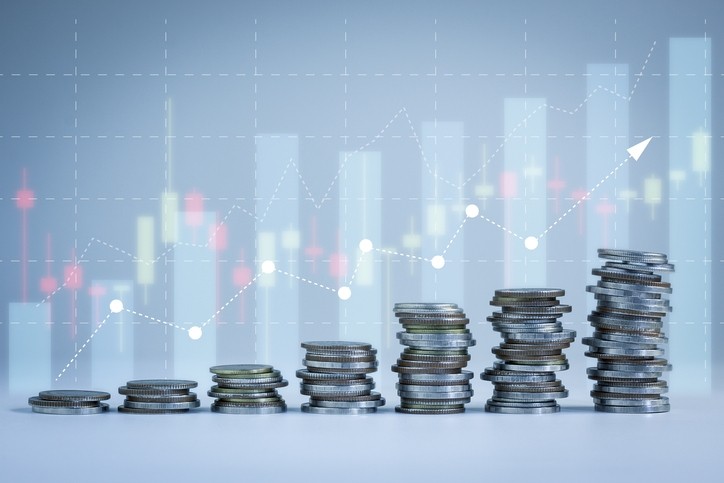Natural Products Expo West
The new investment landscape: Expect lower returns, longer exits but more sustainable growth

“The whole world is different than 2019. There have been a lot of dramatic shifts in one direction or another over the last three years. At the beginning of the pandemic, it felt like there was no more money ever, ever coming into CPG ever again” as VCs saw investments crumble near overnight under the duress of broken supply chains, shifts in shopping and a recalibration of consumers’ needs and wants, said Sarah Philips, VP at Emil Capital Partners, which manages a portfolio of better-for-you brands, including plant-based protein bar brand Aloha, bread and baked food business Base Culture, and the natural children’s food brand Kidfresh.
But as external forces stabilize post-pandemic, “the most recent shift that we’re feeling now is a little more nuanced,” she explained to FoodNavigator-USA at Natural Products Expo West in Anaheim.
“Now, venture capitalists are, obviously, defending their existing portfolios, because we believe in the brands that we’ve invested in over the last three to five years and we have a high conviction in them,” but “in terms of new deals, I think we’re seeing people pause for a minute an not be so aggressive about writing checks, but rather really sitting back and thinking about what is defensible about this company? What’s unique? What’s interesting? What is going to endure beyond a 12-month fad and what can become a platform or bigger company,” she said.
“It just takes a little bit more critical thinking around the trends and what’s going to endure past 2025,” and that takes more time, she added.
New expectations for a new world
Venture Capitalists are adjusting their expectations about returns and exits accordingly, and so should entrepreneurs, Philips said.
“People used to think [exits would occur] in three to five years, but now it is probably more like five to eight years. It has definitely extended to accommodate for how long it takes to prove to a strategic or financial buyer that this is an enduring business that consumers are going to love for 10, 20 or 30 years and continue to buy from and that is going to grow. And showing that kind of track record, takes at least five years,” she explained.
Many VCs also have abandoned the paradigm of investing in a large portfolio of companies knowing that some will fail but hoping to increase their chance of landing a ‘unicorn’ that will grow from zero to $100 or $200 million in sales in six months, Philips said.
“I don’t think the growth trajectories that VCs expected or hoped for when they sought unicorns have panned out in a way that is sustainable,” she explained. “You can get form zero to $100 million in sales in six months by pouring in $50 million in marketing, but how long are you going to pour in $50 million of marketing every year to sustain that level of sales because a lot of consumers won’t change their behaviors that quickly.”
She reiterated: “It is better to build something that is closer to breakeven to slightly profitable in the early growth stage,” but has a better chance of becoming a steady business that someone else will buy.
Buyer beware
Just as VCs are becoming more cautions, so too are the large CPG strategics that a few years ago snapped up startups on the regular, said Philips.
“Some of the assets that strategics have snapped up have done really great for them, and others not so much. And when I talk to people at corporates or these large organizations, they are also pausing and trying to be more thoughtful around strategic fit in their portfolio, what resources they can really bring to bear and how they want that asset to sit – whether it is a full integration or run separately at first to see how things go before fully integrating it,” Philips said.
Entrepreneurs need to level set expectations
While this may sound like bad news for startups looking to scale and exit quickly, Philips says this mind shift is a good thing for the CPG industry in part because it level sets expectations and hopefully fewer entrepreneurs will enter the space carelessly.
To succeed in this new environment, Philips advises entrepreneurs to focus on profitability, establishing sustainable EBIDA, margins and cash flow.
“Show us that your $100 million in hypothetical sales is not because you’re throwing $50 million in to marketing and influencers and Facebook and Instragram ads, but because of the consumer. Show us that you’re really meeting a need for consumers who want to do better for their health or better for their pet or better for their kids or their community or society,” she said.
The success of many startups hinges on the founder, their story and their management team, Philips added.
Of course, it helps if a product or brand is on trend – the trick is separating out the fads, she said.
“There are a lot of ideas around functional tribes, like gluten-free, grain-free, keto, paleo, you name it. But the trend that I’m seeing that I’m interested in is what is really applicable beyond the coasts and that is just people trying to do a little better for their health, but also resonating with the fact that they’re not going to be perfect,” Philips said.
She explained that while New Yorkers may be counting their macros and calories, many people who live in the Midwest or South are not – but they are trying to eat a little bit cleaner, and so brand messaging that encourages doing better, but also acknowledges people are imperfect, is what will have a broad, lasting impact.
Ultimately, not every entrepreneur will succeed, and that is okay, too, said Philips.
“The nature of startups is that not everyone is going to be successful, but I think at a minimum, the personal and professional growth you’ll see and then generate for others, and what you’ll inspire others to do is worth it,” she explained.
And, those lessons could lead to success the next time, she added.









